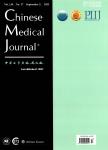Blood vessels in fat tissues and vasculature-derived signals in controlling lipid metabolism and metabolic disease
Blood vessels in fat tissues and vasculature-derived signals in controlling lipid metabolism and metabolic disease作者机构:Department of MicrobiologyTumor and Cell BiologyKarolinska Institute17165 StockholmSweden Hong Kong Centre for Cerebro-Cardiovascular Health EngineeringHong KongChina
出 版 物:《Chinese Medical Journal》 (中华医学杂志(英文版))
年 卷 期:2022年第135卷第22期
页 面:2647-2652页
核心收录:
学科分类:1002[医学-临床医学] 100201[医学-内科学(含:心血管病、血液病、呼吸系病、消化系病、内分泌与代谢病、肾病、风湿病、传染病)] 10[医学]
基 金:YC’s laboratory is supported through research grants from: the Swedish Research Council (Nos. 2011-04091, 2016-02215, and 2019-01502) the Swedish Cancer Foundation (No. 200734PjF) the Swedish Children’s Cancer Foundation (Nos. PR2015-0159 and PR2018-0107) the Strategic Research Areas (SFO) -Stem Cell and Regenerative Medicine Foundation, the Karolinska Institute Foundation (No. 2020-02080) the Karolinska Institute distinguished professor award the NOVO Nordisk Foundation, Hong Kong Centre for Cerebrocardiovascular Health Engineering, Hong Kong, China the Knut and Alice Wallenberg’s Foundation (No. KAW2014.0112)
主 题:Blood metabolism obesity
摘 要:Metabolic disorders,including endocrine disorders,obesity,diabetes,cerebrocardiovascular disease,and even cancer,are the most common and lethal diseases with the leading all-cause mortality around the globe.[1]For example,according to the World Health Organization,type 2 diabetes mellitus(T2DM)as a chronic disease owing to insulin resistance became the ninth leading cause of death with 1.5 million deaths in 2019.[2]Currently,there are approximately 422 million people worldwide suffering from diabetes,with the majority living in low-and middle-income countries.[3]High T2DM prevalence has been associated with obesity and lifestyle factors such as lack of physical exercise,although genetic factors are linked to a subpopulation of T2DM patients.



